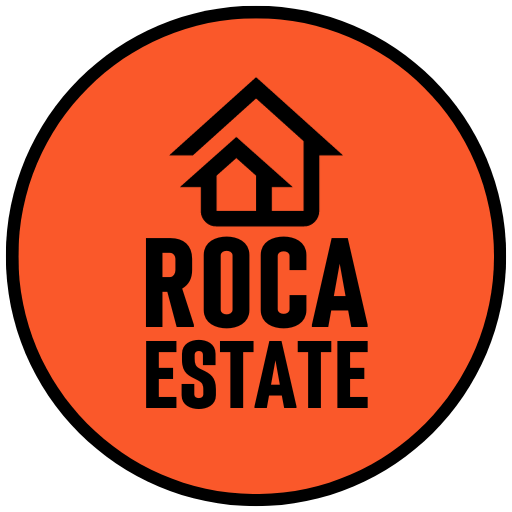As a leading name in luxury real estate, Roca Estate Agency is committed to providing our clients with the most accurate and insightful information about the Portugal property market. The year 2024 is poised to be a significant one for real estate in Portugal, and understanding the market trends is crucial for anyone considering an investment in this beautiful country. The real estate market, inherently influenced by a multitude of economic, political, and social factors, is subject to fluctuations and shifts that can impact investment decisions. In Portugal, these dynamics are particularly pronounced, given the country’s growing status as a prime European real estate destination. The upcoming year, 2024, is anticipated to be a defining period for the Portugal property market, with various indicators suggesting new trends and directions. As a premier luxury real estate agency, Roca Estate Agency is uniquely positioned to analyze these trends and provide insights into how they might shape the market.
The Current State of the Portugal Real Estate Market
A Decade of Growth: 2010-2023

The Portugal real estate market has experienced a remarkable journey over the past decade. From 2010 to 2023, house prices in Portugal have almost doubled, showcasing a robust growth trajectory that contrasts sharply with the trends observed in many other European Union countries. This period has been characterized by a consistent upward trend in property prices, defying the broader European context of fluctuating real estate values influenced by rising bank loan interest rates. The resilience of the Portugal property market during this time is noteworthy, particularly in light of the European Central Bank’s interest rate policies, which have generally exerted downward pressure on house prices across the Eurozone.
Comparative Growth and Market Dynamics
The growth rate of Portugal’s housing market stands out even more starkly when compared to its European counterparts. Between 2010 and 2023, house prices in Portugal surged by 95.5%, a significant leap compared to the 79% increase in Germany, 46.7% in the Netherlands, 33% in France, and a mere 0.9% in Spain, according to data from the IESEG School of Management. This exceptional increase in Portugal’s house prices has predominantly been concentrated in existing properties rather than new developments. While the average price of new homes in Portugal rose by 3.8% during this period, this rate of increase was modest compared to the overall market growth, and notably higher than the increases seen in countries like the Netherlands and France, and in stark contrast to the decrease observed in Germany.
Factors Influencing the Market
Several factors have contributed to this extraordinary growth in Portugal’s real estate sector. One significant element has been the special tax regime for non-habitual residents, which is speculated to have played a role in driving up house prices. This regime, however, is set to conclude at the end of 2023, leading to speculations about its potential impact on future market trends. Despite this impending change, the governor of the Bank of Portugal has expressed skepticism about attributing the steep rise in house prices solely to such programs. This suggests that the market’s strength may be rooted in more fundamental aspects of Portugal’s economy and real estate sector, indicating a more complex interplay of factors behind the sustained growth in property values.
Golden Visa Changes and Market Stability
The recent amendments to Portugal’s Golden Visa Program, as part of the “More Housing” bill, have been a topic of discussion in the real estate sector. Contrary to concerns, these changes are unlikely to negatively impact the property market. According to Mansion Global, the end of the Golden Visa is not expected to have a significant effect on property values. The Property Market Index report supports this view, asserting that home prices in Portugal will continue to rise regardless of the alterations to the Golden Visa Program. This resilience suggests a robust and adaptable property market in Portugal, capable of maintaining its growth trajectory even amidst regulatory changes. The ongoing strength of the market, despite these adjustments, underscores the enduring appeal of Portugal as a destination for real estate investment.
Predictions for the Portugal Real Estate Market in 2024

Sustainable Growth in the Face of Change
As we look towards 2024, the Portugal real estate market is expected to continue its trajectory of growth, albeit in a landscape that is adapting to new regulatory frameworks. Notably, despite the phasing out of the Golden Visa program, the market is showing remarkable resilience. According to Mansion Global, an 8.7% increase in home prices is anticipated. This growth is particularly pronounced in luxury areas such as the Algarve’s Quinta do Lago, where a staggering 19% rise in property prices is projected by 2025. These figures not only reflect the market’s robustness but also its ability to thrive amidst regulatory changes.
Diverse Factors Steering the Market

The dynamics of the Portugal real estate market in 2024 are shaped by several key factors:
- Economic Stability and Growth: The foundation of the market’s strength lies in Portugal’s stable political and economic environment. The country’s GDP is on an upward trajectory, fostering a conducive climate for real estate investments. This economic stability is a significant draw for both domestic and international investors, underpinning the market’s growth prospects.
- Population Wealth and Rental Yields: The increasing wealth of Portugal’s population, coupled with attractive rental yields, is creating lucrative opportunities in the real estate sector. As reported by Investropa, these factors are not only encouraging property purchases but also making real estate a viable option for generating rental income. This trend is expected to gain further momentum in 2024, bolstering both the residential and investment segments of the market.
- Demand and Supply Dynamics: Despite a forecasted 2.1% drop in house prices by CaixaBank Research, the demand for properties, especially in sought-after locations, is likely to remain robust. The ongoing shortage of new homes, compounded by high construction costs, will continue to influence the market, potentially leading to a tighter supply and sustained demand.
- Market Cooling and Price Adjustments: The anticipated market cooling, characterized by a potential decrease in sales and a slight drop in prices, suggests a shift towards a more balanced market in 2024. This could pave the way for more sustainable and stable growth in the long term, providing a healthier environment for both buyers and sellers.
- Impact of Regulatory Changes: The end of the Golden Visa program and other regulatory adjustments are expected to have a limited impact on the overall growth trajectory of the market. While these changes may alter the dynamics in certain segments, the fundamental attractiveness of Portugal’s real estate market remains strong.
- Regional Variations: Different regions within Portugal are likely to experience varying trends. Areas like the Algarve and Lisbon are expected to continue attracting strong demand, leading to sustained or even increased property prices. These regional variations highlight the importance of localized market knowledge for making informed investment decisions.
Navigating the Future of Portugal’s Real Estate Market

As we conclude our exploration of the Portugal real estate market predictions for 2024, it is clear that the sector is poised for a year of dynamic growth and transformation. Despite facing regulatory changes and market adjustments, the resilience and appeal of Portugal’s property market remain strong. The anticipated growth, coupled with the stability of the country’s economic and political landscape, presents a compelling case for both investors and homebuyers.
For those considering entering or expanding their presence in the Portugal real estate market, 2024 offers a landscape rich with opportunities. The key to success lies in understanding the nuanced dynamics of the market, from regional variations to the impact of economic and regulatory factors. It is a market that rewards informed decision-making and strategic planning.
| Aspect | Details |
| Market Growth | 8.7% increase in home prices predicted for 2024. |
| Top Hotspot | Algarve’s Quinta do Lago with a projected 19% rise in property prices by 2025. |
| Economic Stability | Positive GDP growth, contributing to a favorable investment climate. |
| Population Wealth | Increasing wealth and attractive rental yields, enhancing investment opportunities. |
| Demand and Supply | Robust demand in prime locations, shortage of new homes, and high construction costs influence supply. |
| Market Dynamics | Potential market cooling with a forecasted 2.1% drop in house prices. |
| Regulatory Changes | End of the Golden Visa program with limited impact on market growth. |
| Regional Variations | Robust demand in prime locations, shortage of new homes and high construction costs influence supply. |
At Roca Estate Agency, we are committed to guiding our clients through this evolving landscape with expert insights and tailored advice. Our deep understanding of the market nuances and our dedication to excellence position us as your ideal partner in realizing your real estate aspirations in Portugal.
Whether you are seeking a luxury home, a strategic investment, or a picturesque retreat, we invite you to leverage our expertise and market knowledge. Contact Roca Estate Agency today to embark on your journey into the vibrant and promising world of Portugal’s real estate market in 2024. Let us help you turn your property dreams into reality.




